Have you recently had a new student put on your caseload who is needing to work on reading and writing skills? You may find yourself asking, “What is my role as an SLP when it comes to reading and writing?” or “Where do I even begin?” then this blog is for you! I will be defining “literacy” as well as providing you with information in order to better understand your role as an SLP when working on literacy skills with your students.
Before we examine the correlation between literacy and the SLP role, let’s dive into their definitions and some statistics.
What is Literacy?
Literacy refers to your ability to read and write. Children learn how to say sounds and then put them together in order to make words very early on. These early speech and language skills form that foundation to teach children how to read and write. Difficulties with both reading and writing may occur due to:
- Speech Sound Errors. When children have difficulty producing various speech sounds, they often times have trouble then associating letters to sounds. This may then cause difficulty sounding out words or decoding, directly impacting both reading and writing.
- Language Delay. Children with language delays typically have difficulty with literacy skills due to lower language comprehension skills as well as not fully understanding various parts of the language (i.e. grammar, vocabulary, syntax, etc.). Children will have difficulty reading and writing if they have trouble understanding text they read or putting their ideas on paper.
Statistics:
Children with speech and language deficits are at a higher risk for reading and writing difficulties. According to research, comorbidity between literacy difficulties and speech and language deficits occurred in as high as 50%. Research also shows approximately 20%-28% of children with speech sound disorders (SSD) have literacy difficulties (Overby, Trainin, Smit, Bernthal, and Nelson, 2012). Some studies have shown that speech sound production does not necessarily have a universal effect on literacy skills; while some studies have found children with SSD to have poorer literacy outcomes. Other studies found children with SSD to have no effect on reading and writing skills.
Research shows that both children with language deficits as well as speech sound disorders are more likely to have literacy difficulties (Overby, Trainin, Smit, Bernthal, and Nelson, 2012). So when thinking about your current caseload, that is likely the vast majority of the students you are currently treating! So let’s dive in even deeper to talk about your role when providing literacy instruction with your clients.
The SLP’s Role in Literacy Instruction:
Before targeting reading and writing skills, we need to understand the role that SLPs play when working on literacy development with our students. ASHA released an article outlining the role of the SLP with reading and writing skills for young children to adolescents (American Speech-Language-Hearing Association, 2001). Listed below are those roles and responsibilities:
1. Preventing literacy difficulties by fostering language acquisition:
Finding ways in order to prevent literacy difficulties would be the first step when working with our students. This may be working with parents, teachers, or other interventionists to develop programs or lessons that help children develop appropriate language skills and strategies to support reading and writing skills. Finding ways to provide several high-quality opportunities for children to participate in literacy activities within a variety of settings (home, school, etc.) will allow for best support when thinking about prevention efforts.
2. Identifying children at risk for reading and writing problems:
After providing preventative measures for literacy difficulties, children who have not fully grasped emergent literacy skills may then be referred for further assessment. Work with your team in order to develop screening processes obtain quick information to see if further assessment is warranted. You can even develop a referral process with the teachers and other interventionists. This will result in a more uniform way for the entire team to indicate who may be in need of services.
3. Assessing reading and writing:
Once you have found those students who are needing further assessment, complete dynamic evaluations to look at the child’s overall language skills. This includes the child’s ability to use spoken language, looking into their reading skills, writing skills, as well as spelling.
4. Providing intervention and documenting outcomes for reading and writing:
When beginning to provide intervention for those students needing more support with reading and writing, it is important to work together with anyone else who may be working with that particular student. Work together with teachers as well as caregivers in order to form functional goals to begin providing intervention. Be sure to develop ways to document the student’s progress as well as continue to evaluate to determine when new goals need to be formed.
Provide assistance when needed to parents and teachers in order to provide the student with all necessary support. As an SLP it is our job to advocate for effective literacy practices. It is also our task to advocate for advanced knowledge base in literacy instruction.
I hope this blog has given you a better understanding of literacy and the SLP role when working with students. Now, you have identified a student, or multiple students, who are exhibiting difficulties in reading and/or writing. What do you target to support their literacy development? What resources are out there for you? Tune in to next week’s blog to obtain resources and activity ideas you can implement within therapy sessions.
Links:
- Article: (Overby, Trainin, Smit, Bernthal, and Nelson, 2012) Preliteracy Speech Sound Production Skill and Later Literacy Outcomes: A Study Using the Templin Archive.
- Article: American Speech-Language-Hearing Association. (2001). Roles and responsibilities of speech-language pathologists with respect to reading and writing in children and adolescents [Position Statement]. Available from www.asha.org/policy.
- If you are interested in finding out about pre-literacy skills and why are they important, check out this podcast here.

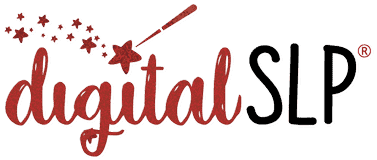
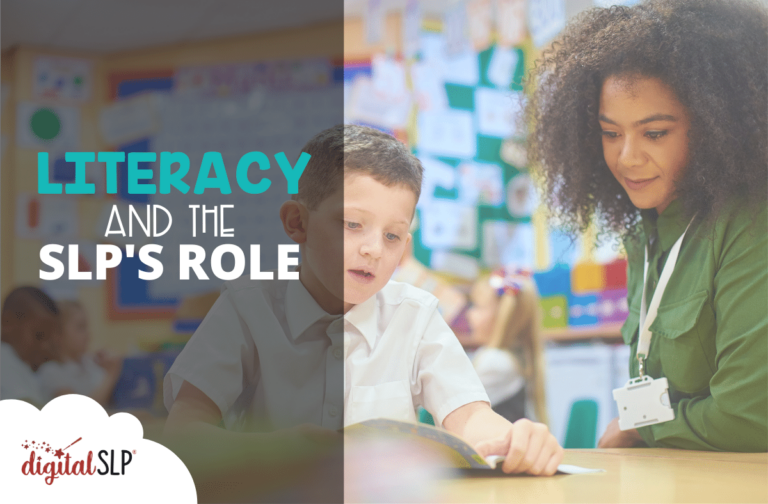
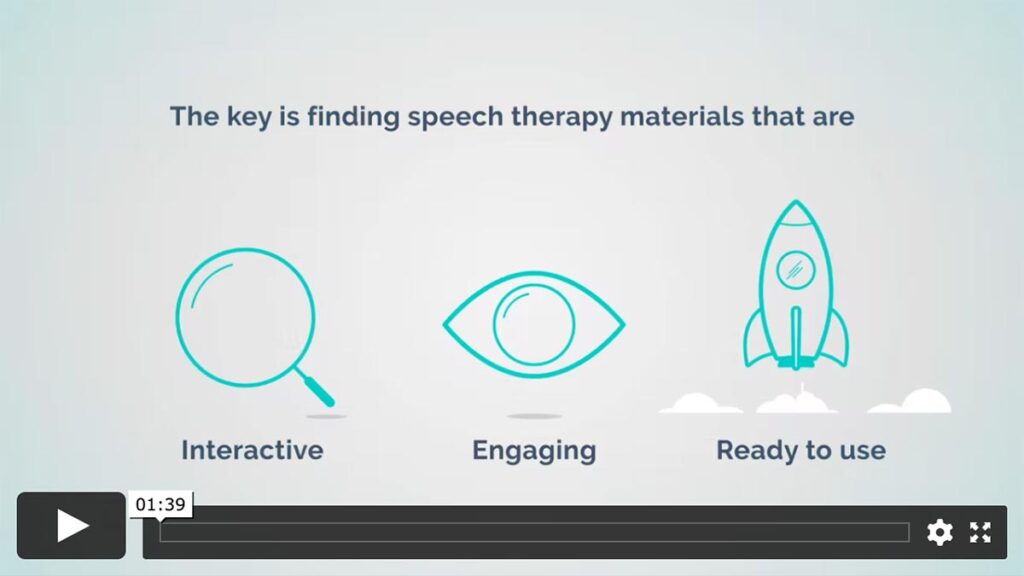



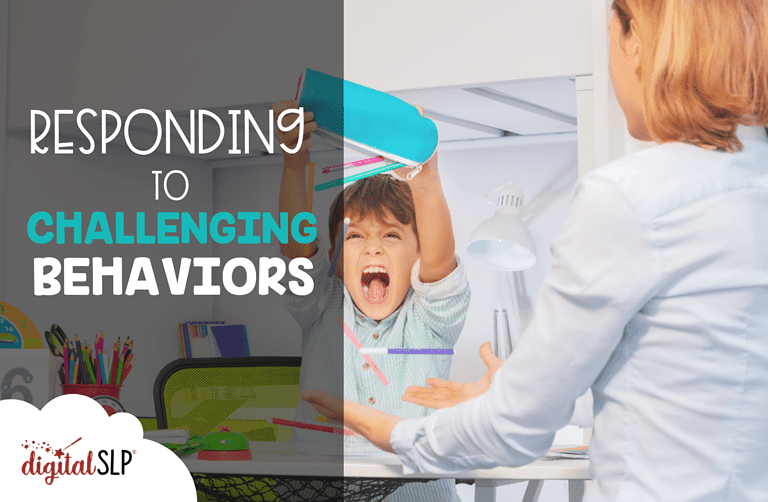

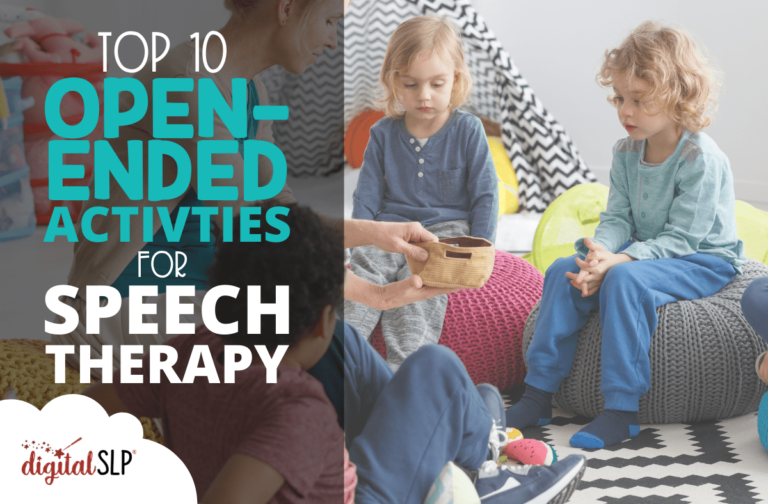



Recent Comments